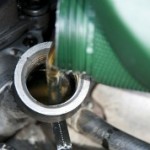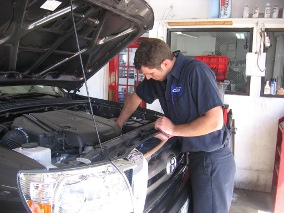 We are often asked, “which oil should I use, conventional or synthetic?” This seems to be an unending debate, conventional oil vs. synthetic oil, but we will try to give you some facts that might make your decision a bit easier.
We are often asked, “which oil should I use, conventional or synthetic?” This seems to be an unending debate, conventional oil vs. synthetic oil, but we will try to give you some facts that might make your decision a bit easier.
Conventional oil comes from crude oil that is pumped out of the ground. The crude oil is refined at an oil refinery and becomes the base stock for conventional oil. Even though is goes through a refining process conventional oil still contains small amounts of contaminants that can’t be removed. Unlike conventional oil, synthetic oil base stock is created artificially or synthesized. These oils are purer and are custom designed to provide the “ideal” lubrication.
Both conventional oil and synthetic oil have additives to help prevent sludge and deposit build-up, but synthetic oil also has performance additives that provide superior protection for the life of your engine and in extreme driving conditions such as extremely cold or hot temperatures.
Because of the higher purity properties of synthetic oil, it can stand up to heat and withstand colder temperatures much better than conventional oil. This is a huge advantage when you first start your car in the cold weather.
There are a few more advantages you get by using synthetic oil. It flows easier in cold weather, so if you live where it gets really cold in the winter, you might want to use synthetic.
Also because synthetic oil doesn’t break down as quickly as conventional oil, there are longer intervals between oil changes. Although some have thought that synthetics last forever, this is not the case. Eventually the additives in the synthetic oil will break down like conventional oil and the oil will need to be changed.
The higher cost of synthetic oil has been a major deterrent for some people, but the fact that they extend drain intervals, provide better fuel economy and reduce engine wear, make them more economical than you might think.
Just as we need to do with all the information we receive, we need to decide what works best for us and our vehicle, so look over your owner’s manual, see what they recommend and then make your decision.
For all of your Denver Auto Repair needs, trust Express Car Care. Call (303) 691-2760 or stop by our shop today.

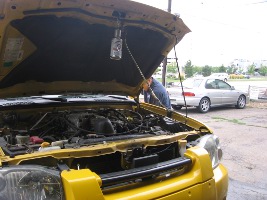
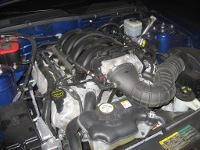

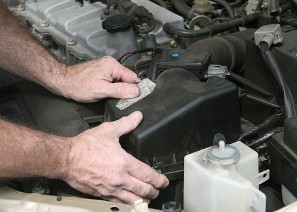 Today’s cars are more complicated than ever, using computers and sensors to run virtually everything within your car. From navigational systems, to videos, and even WiFi connectivity, when something goes wrong, it can have a major impact on your daily life.
Today’s cars are more complicated than ever, using computers and sensors to run virtually everything within your car. From navigational systems, to videos, and even WiFi connectivity, when something goes wrong, it can have a major impact on your daily life.